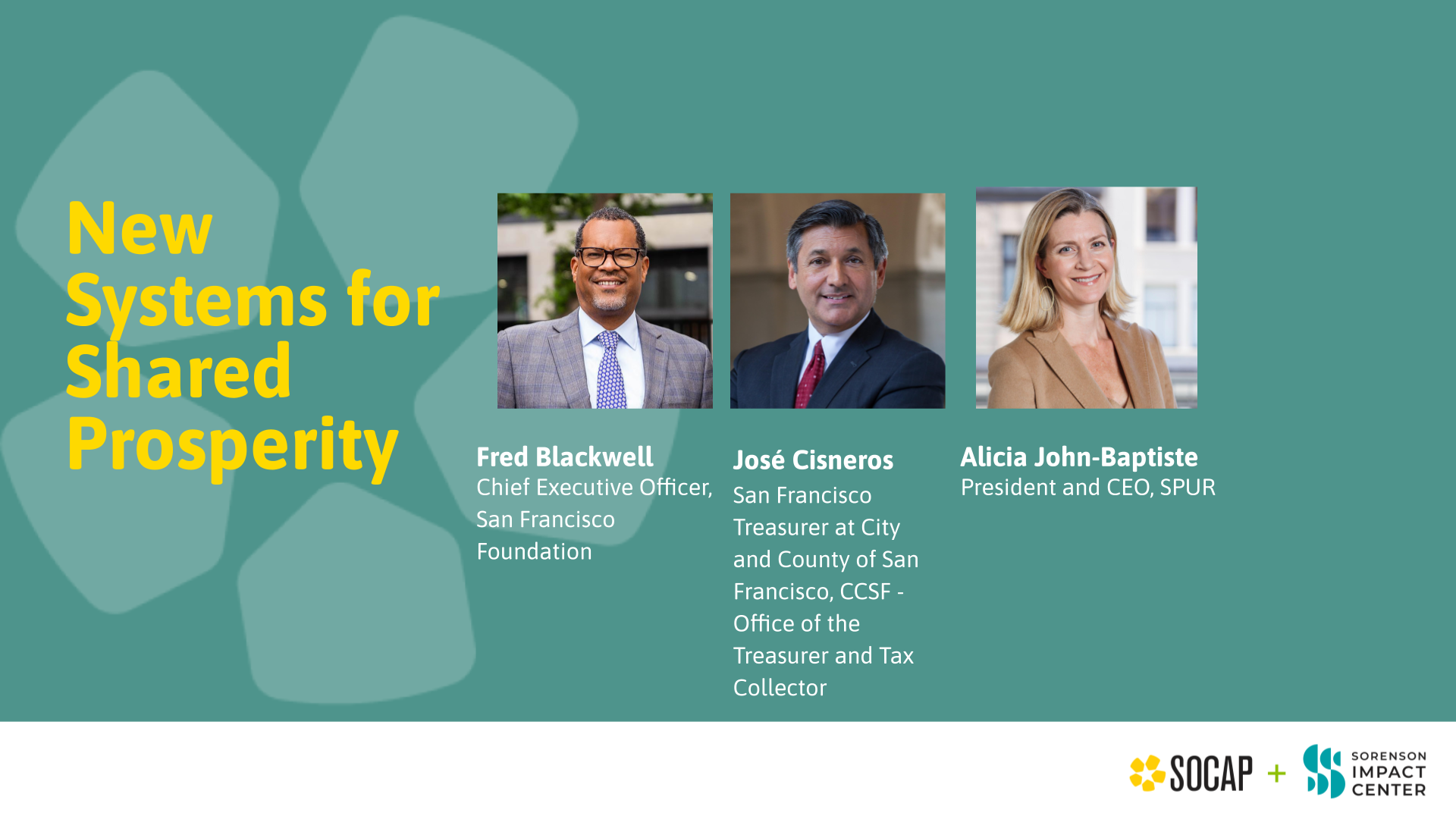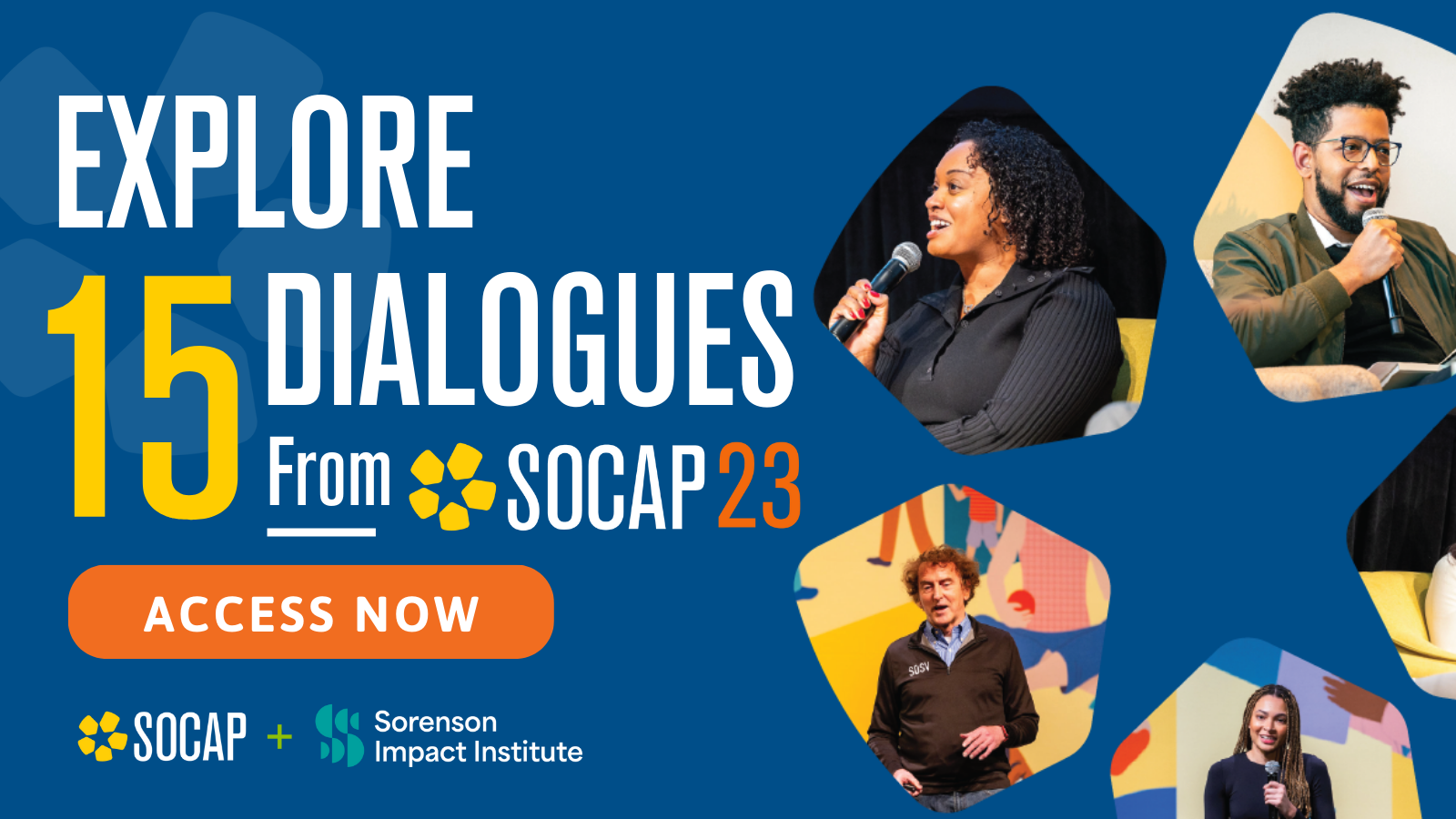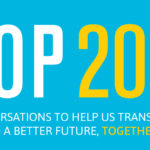How Community Organizations Are Working for Shared Prosperity
Rising income disparity and housing costs are issues across the United States but particularly acute in the San Francisco Bay Area, where high-tech industries and population density exacerbate income gaps. Community leaders who are taking action to bridge income gaps took to the stage at SOCAP22 — in the heart of San Francisco — to share how they are collaborating to get at the root of the systemic causes.
During the New Systems for Shared Prosperity session moderated by Alicia John-Baptise, President and CEO of SPUR, she said the role that structural racism plays in enabling income gaps has largely been ignored — and the results drive division in San Francisco and other communities across the United States. “Economic inequality comes with a lot of risk,” she said. “We know that societies that experience great levels of economic inequality also have worse health outcomes, lower educational attainment, slower economic growth, higher crime rates, and more concentrated political power, which in turn can lead to political insecurity and social distrust.”
The fact that there are numerous causes of economic inequality means there also are numerous potential solutions, John-Baptise said, noting that local organizations such as the San Francisco Foundation are seeking solutions by working on the dynamics of housing ownership. Higher housing costs have a ripple effect for people with lower incomes, said Fred Blackwell, Chief Executive Officer of the San Francisco Foundation, as they reduce their opportunity to build a savings account for family stability. “Housing really impacts one’s ability to make it economically in all kinds of different ways,” he said. “Your address or ZIP code can be a sentence to lack of opportunity.”
Blackwell said it’s also important to reverse narratives that lower-income people are financially irresponsible. “People on a low income are probably better at managing dollars than anyone else. They know how to stretch a dollar,” he said. “We need to continue to think about how we can have a tax structure that supports low-income families and families with children instead of a tax system that supports a set of trickle-down economic circumstances that we know doesn’t work.”
“We will not remain competitive as long as we are leaving people behind. We need policies that do not just raise the floor but support economic mobility.”
— Fred Blackwell
By limiting the financial opportunity for some segments of our society, he said the United States limits its economic potential on the global stage. “In a global economy, your ability to compete as a nation depends on your ability to present and skill a ready working workforce to the global economy. And to the extent that only a fraction of your populations is contributing, you are putting yourself at a competitive disadvantage,” he said. “We will not remain competitive as long as we are leaving people behind. We need policies that do not just raise the floor but support economic mobility.”
Examining how city policies and practices negatively affect people with lower incomes is an area of focus for José Cisneros, Treasurer for the City and County of San Francisco. “We can see there’s a lot of folks in our community who don’t have access to the right financial products and tools to be successful. We look at ways we can help people be successful despite the economic and systemic challenges they face,” he said. “Anytime a fine or a fee is the same dollar amount for everyone, it just follows that fine or fee will be more negatively impactful for a low-income family than for a middle- or high-income family. We have to right-size that financial penalty.”
We need to analyze and tear down practices we’ve had in place for years; we have to be realists and recognize that they’re harming people, not helping them.
— José Cisneros
In addition to examining and adjusting government fees, Cisneros’ office has launched programs to help people gain skills and connections that increase their opportunity to build wealth and be financially successful. These include connecting people with banks so they can establish accounts and avoid paying check-cashing fees and providing one-on-one meetings with financial coaches to learn about credit scores and how to manage debt and build savings. “Many of those interactions lead to vast improvements in people’s financial scores and financial outcomes,” he said. “We need to analyze and tear down practices we’ve had in place for years; we have to be realists and recognize that they’re harming people, not helping them.”
Watch New Systems for Shared Prosperity
Speakers:
José Cisneros, Treasurer for the City and County of San Francisco
Fred Blackwell, Chief Executive Officer, San Francisco Foundation
Alicia John-Baptiste, President and CEO, SPUR







